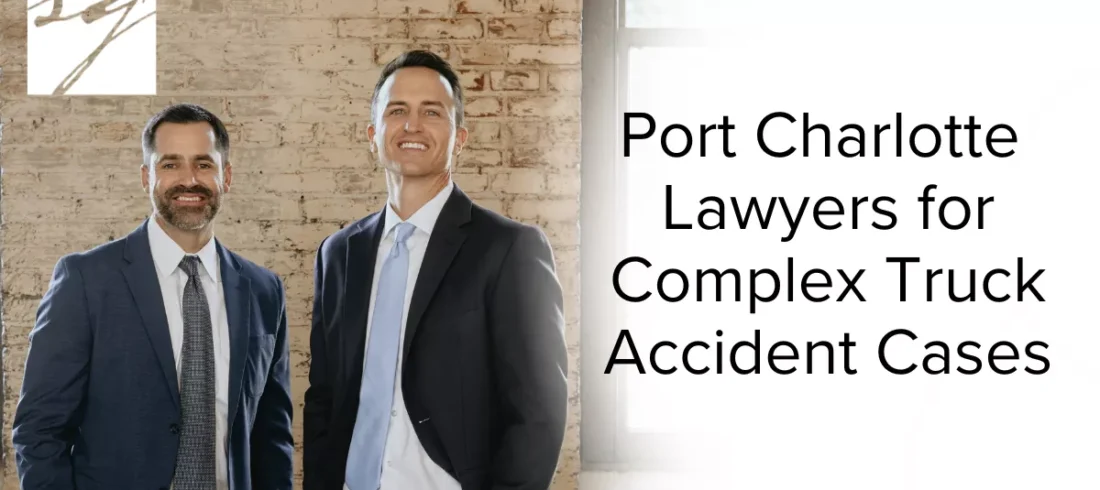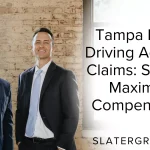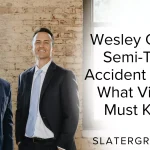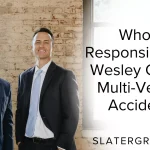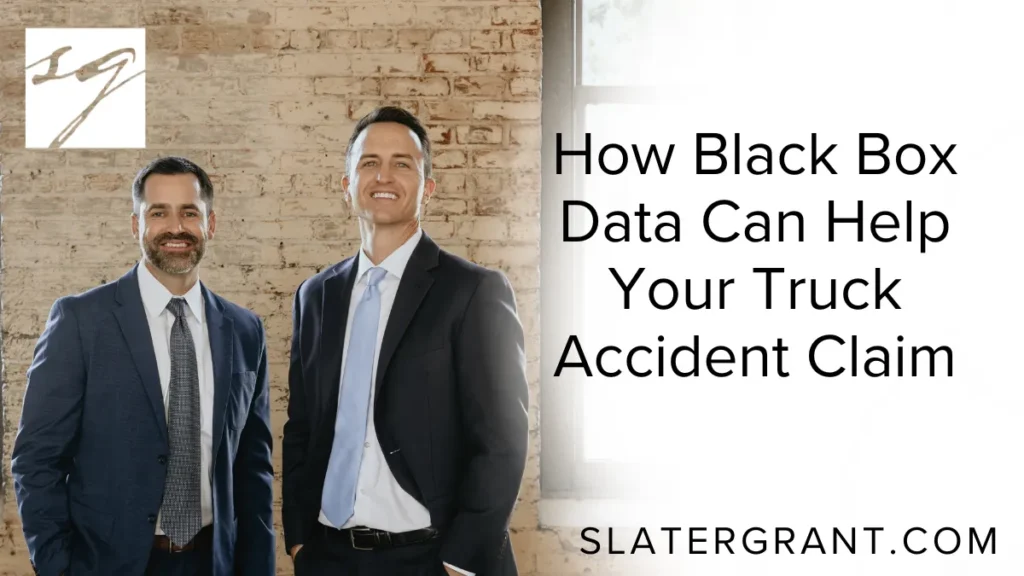
In the aftermath of a devastating trucking accident, evidence is everything. Among the most crucial forms of proof in these cases is truck black box accident evidence. At Slater | Grant, we understand how pivotal this data can be in proving fault, establishing negligence, and securing the compensation our clients deserve.
Complete the free case evaluation form or call us now at 813-995-6444 to take the first step toward justice.
What Is a Truck Black Box and Why It Matters
Commercial trucks are typically equipped with Electronic Control Modules (ECMs) or Event Data Recorders (EDRs), commonly known as black boxes. These devices continuously collect real-time data about the truck’s operation. In the event of an accident, this truck black box accident evidence can be extracted to provide a detailed timeline of what occurred before, during, and after the collision.
These devices record critical data such as:
- Speed at the time of impact
- Sudden braking or deceleration events
- Throttle position
- Airbag deployment
- Steering angles
- Engine RPM
- GPS location
- Hours of service compliance
This comprehensive information can establish whether a truck driver was speeding, whether mechanical failure played a role, or whether the driver violated hours-of-service regulations. In short, truck black box accident evidence gives us the truth—unchanged, impartial, and powerful in court.
How Truck Black Box Accident Evidence Supports Your Claim
In personal injury and wrongful death lawsuits stemming from truck accidents, liability can be hotly contested. Trucking companies and their insurers often deploy aggressive legal teams immediately following a crash to mitigate financial exposure. This is where truck black box accident evidence becomes invaluable.
At Slater | Grant, we move swiftly to preserve this data before it can be deleted or overwritten. By leveraging black box evidence, we can:
- Reconstruct the accident with precise details
- Refute false claims made by the defense
- Demonstrate violations of FMCSA (Federal Motor Carrier Safety Administration) rules
- Confirm speeding or aggressive driving
- Prove fatigue-related impairment based on hours-of-service data
Without this data, your claim relies heavily on witness statements, police reports, and expert testimony. While those are important, black box data provides objective, irrefutable evidence that supports your narrative.
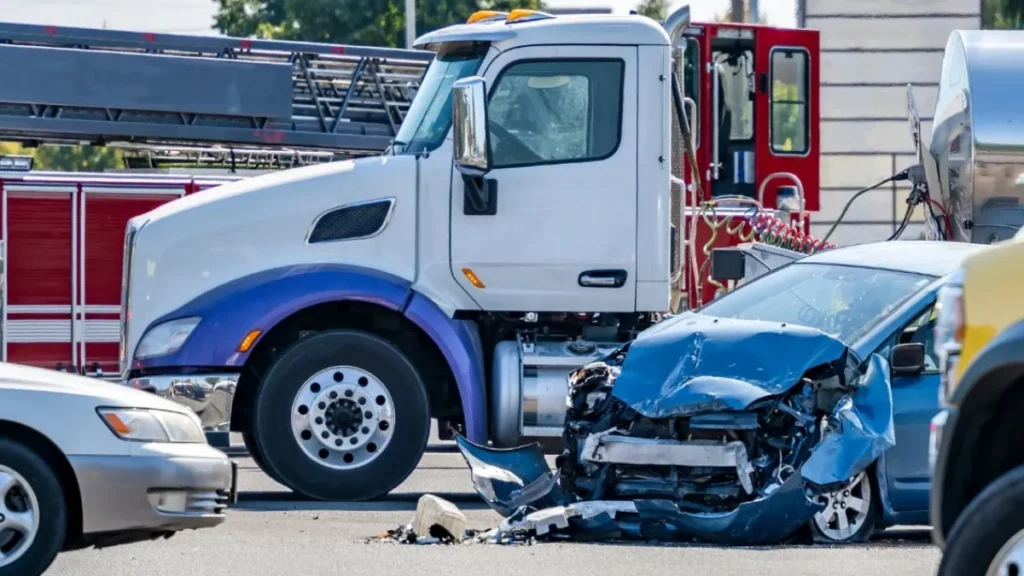
Legal Challenges in Accessing Black Box Data
Unfortunately, accessing truck black box accident evidence isn’t always simple. Trucking companies often resist turning over this data, citing privacy, ownership, or proprietary software concerns. This is why it is essential to work with a law firm like Slater | Grant that knows how to compel the release of such data through preservation letters, spoliation claims, and court-ordered discovery.
If you wait too long, the black box data may be overwritten or intentionally destroyed. Therefore, time is of the essence in truck accident cases. Our legal team acts immediately to secure and preserve all digital evidence.
How Slater | Grant Uses Black Box Data to Win Cases
Our legal team works with leading accident reconstruction experts and forensic analysts who specialize in interpreting truck black box accident evidence. Here’s how we use it to your advantage:
- Speeding & Brake Data: We compare data on speed and braking with traffic conditions to determine if the driver reacted appropriately.
- Service Logs & Driver Fatigue: We examine hours-of-service data to prove if a driver exceeded federal driving limits, indicating potential fatigue.
- Location & Route Logs: We match GPS data to show whether the driver was on a legal, authorized route—or deviating due to personal convenience or illegal activity.
- Maintenance Reports: ECMs often flag mechanical issues. If a warning light was ignored, we can demonstrate negligence in vehicle maintenance.
This comprehensive approach ensures we don’t just build a claim—we build a case that stands up to intense legal scrutiny.
Black Box Evidence in Multi-Vehicle Truck Accidents
In crashes involving multiple vehicles, fault can become complex and contentious. Was the truck driver speeding? Did another driver cut into the lane? Was there a sudden brake failure?
Truck black box accident evidence provides a timeline and hard metrics to clarify these situations. In several high-profile cases, this data has been the linchpin that exonerated our clients or shifted fault percentages to maximize their recovery.
Federal Regulations Supporting the Use of Black Box Data
The Federal Motor Carrier Safety Administration (FMCSA) has established rules that support the use and collection of truck black box accident evidence. Since December 2017, the FMCSA mandates that commercial vehicles be equipped with Electronic Logging Devices (ELDs) that record hours of service, speeding, and other critical behaviors.
These records are considered valid evidence in both civil litigation and regulatory enforcement. At Slater | Grant, we stay up-to-date on FMCSA requirements to ensure all necessary evidence is gathered and applied strategically.
The Role of Black Box Data in Negotiating Settlements and Trial Outcomes
Beyond its critical function in establishing liability, truck black box accident evidence plays a significant role in settlement negotiations and trial strategies. When the hard data from a truck’s black box is meticulously analyzed and presented, it can dramatically influence the behavior of insurance adjusters and defense attorneys.
Insurance companies are acutely aware that conclusive black box evidence strengthens the plaintiff’s case and reduces their chances of winning at trial. This awareness often motivates them to offer fairer, and sometimes significantly higher, settlement amounts early in the process to avoid costly litigation.
At Slater | Grant, we utilize black box data as a powerful negotiating tool. Our legal team prepares detailed reports and visual reconstructions derived from the data to clearly demonstrate the truck driver’s fault or regulatory violations. This level of clarity and precision leaves little room for dispute, encouraging insurance companies to settle.
If a case proceeds to trial, the same black box evidence serves as compelling testimony before a judge and jury. Expert witnesses interpret and explain the data, transforming technical information into understandable facts that highlight negligence or misconduct.
Thus, securing and effectively leveraging truck black box accident evidence not only aids in proving your case but also maximizes your chances of obtaining a favorable settlement or verdict—ultimately accelerating your recovery process and increasing compensation.
Don’t Let Crucial Evidence Slip Away
The trucking company’s legal team is already working to control the narrative. If you or a loved one were injured in a trucking accident, truck black box accident evidence could be the key to proving your case and recovering maximum compensation.
Don’t delay. Complete our free case evaluation form or call us now at 813-995-6444. We are ready to fight for your rights and secure the justice you deserve.
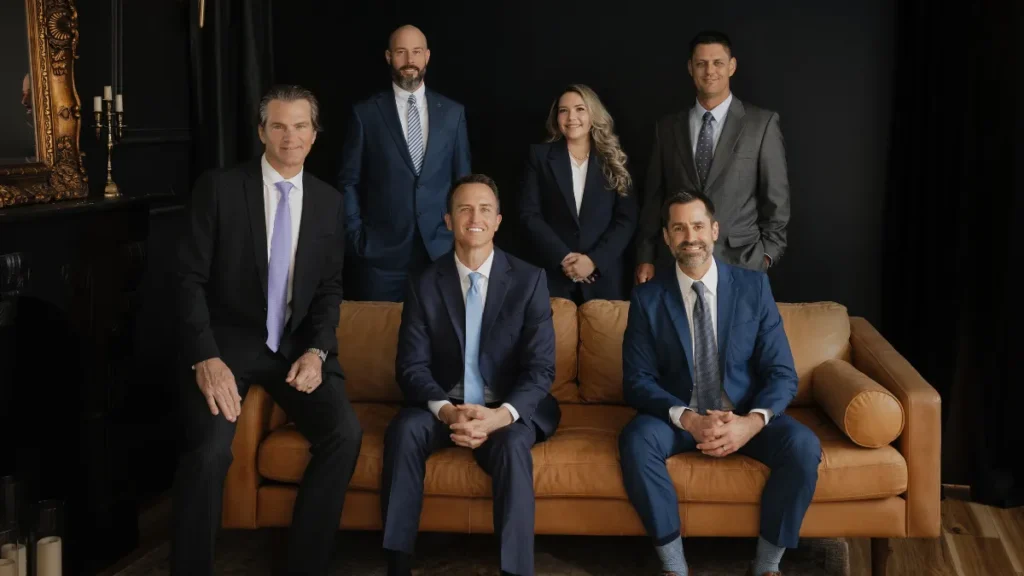
Why Choose Slater | Grant for Your Truck Accident Case
At Slater | Grant, we focus exclusively on serious personal injury and wrongful death cases, with a strong emphasis on commercial vehicle litigation. We have the resources, experience, and courtroom reputation to stand up to powerful trucking companies and insurance carriers.
- Over 20 years of experience in truck accident litigation
- Proven track record in catastrophic injury claims
- Aggressive pursuit of digital evidence, including black box data
- Client-first approach with personal, compassionate service
We represent injured victims across Tampa, Wesley Chapel, and surrounding Florida communities. Let us help you recover the compensation you deserve—contact us today.
Sources
- Federal Motor Carrier Safety Administration (FMCSA) – Offers a detailed overview of regulations regarding Electronic Logging Devices (ELDs), Hours-of-Service compliance, and recordkeeping standards.
https://www.fmcsa.dot.gov - National Highway Traffic Safety Administration (NHTSA) – Provides research on Event Data Recorders and their usage in motor vehicle crashes.
https://www.nhtsa.gov/research-data/event-data-recorder - National Transportation Safety Board (NTSB) – Contains investigative reports and policy guidance that reference the use of black box data in crash analysis.
https://www.ntsb.gov



